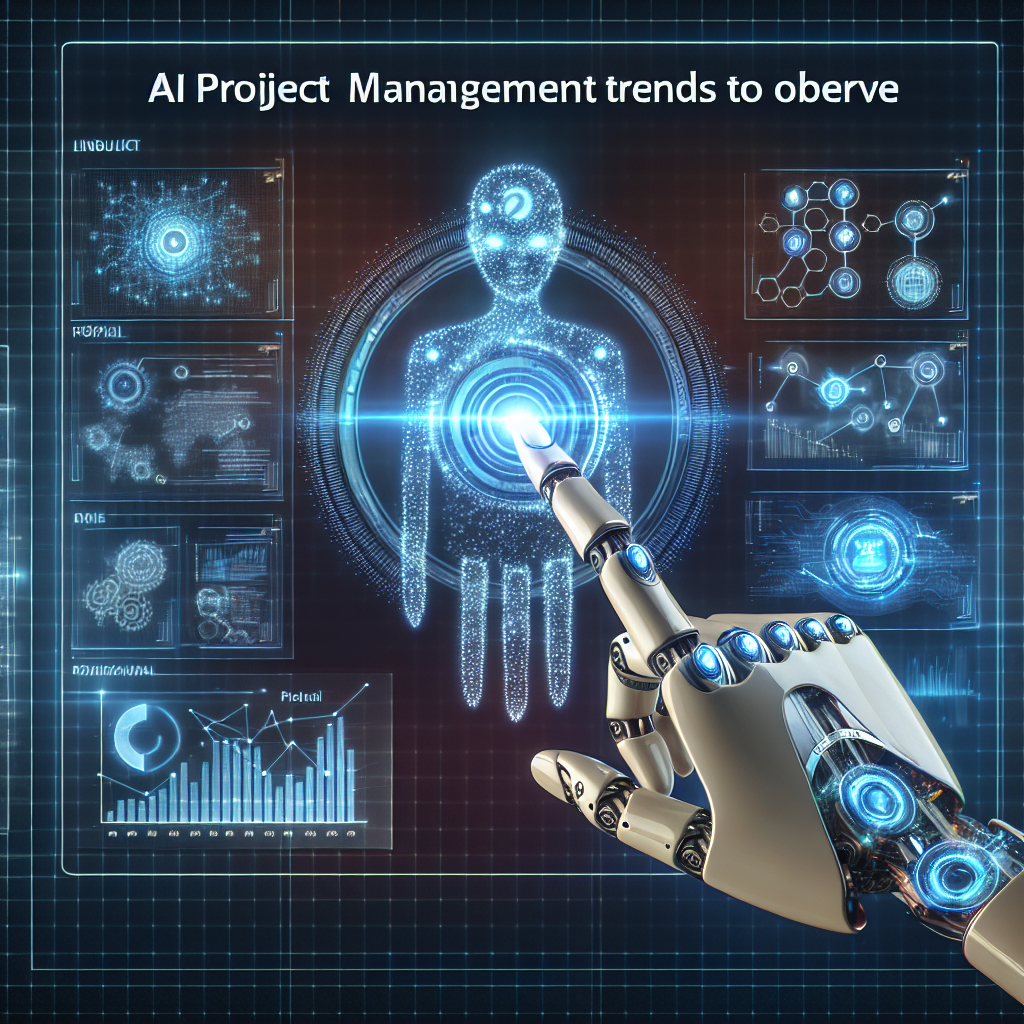AI Project Management Trends to Watch
Artificial Intelligence (AI) is rapidly transforming the way project management is done. From automating routine tasks to providing insights for decision-making, AI is revolutionizing project management processes and making them more efficient and effective. In this article, we will explore some of the emerging AI project management trends to watch in the coming years.
1. AI-powered project planning and scheduling
One of the key trends in AI project management is the use of AI algorithms to optimize project planning and scheduling. AI can analyze historical project data, identify patterns, and predict future project outcomes. This allows project managers to create more accurate project plans and schedules, leading to better project outcomes and increased efficiency.
AI can also help project managers identify potential risks and bottlenecks in a project schedule, allowing them to take proactive measures to mitigate these risks before they impact the project timeline. By using AI-powered project planning and scheduling tools, project managers can ensure that projects are completed on time and within budget.
2. AI-driven resource allocation
Another emerging trend in AI project management is the use of AI to optimize resource allocation. AI algorithms can analyze project requirements, team member skills, and availability to recommend the most efficient way to allocate resources for a project. This can help project managers ensure that the right resources are assigned to the right tasks, leading to improved project performance and productivity.
AI can also help project managers identify opportunities for resource optimization, such as reallocating resources from low-priority tasks to high-priority tasks or reallocating resources from overallocated projects to underallocated projects. By using AI-driven resource allocation tools, project managers can maximize the efficiency of their project teams and improve project outcomes.
3. AI-powered risk management
Risk management is a critical aspect of project management, and AI is increasingly being used to enhance risk management processes. AI algorithms can analyze project data to identify potential risks, assess their likelihood and impact, and recommend mitigation strategies. This can help project managers proactively manage risks and avoid costly project delays and failures.
AI-powered risk management tools can also help project managers simulate different scenarios and assess the potential impact of risks on project outcomes. By using AI to enhance risk management processes, project managers can make more informed decisions and ensure that projects are completed successfully.
4. AI-driven performance monitoring
Monitoring project performance is essential for ensuring that projects are on track and meeting their objectives. AI can help project managers track key performance indicators (KPIs), analyze project data in real-time, and identify performance trends and patterns. This can provide project managers with valuable insights into project progress and performance, allowing them to take corrective actions as needed.
AI can also help project managers identify opportunities for performance improvement, such as optimizing project workflows, reallocating resources, or adjusting project priorities. By using AI-driven performance monitoring tools, project managers can ensure that projects are meeting their goals and objectives and make data-driven decisions to improve project performance.
5. AI-enabled collaboration tools
Effective collaboration is essential for the success of any project, and AI is being used to enhance collaboration among project team members. AI-enabled collaboration tools can facilitate communication, document sharing, task assignment, and progress tracking, making it easier for project team members to work together effectively.
AI can also help project managers identify collaboration bottlenecks and inefficiencies, such as communication breakdowns or resource conflicts. By using AI-enabled collaboration tools, project managers can streamline collaboration processes, improve team productivity, and enhance project outcomes.
FAQs
Q: How can AI help project managers improve decision-making?
A: AI can analyze project data, identify patterns and trends, and provide insights that can help project managers make more informed decisions. By using AI-powered analytics tools, project managers can access real-time project information, track key performance indicators, and identify opportunities for improvement.
Q: What are some of the challenges of implementing AI in project management?
A: Implementing AI in project management can be challenging due to factors such as data quality, integration with existing systems, and resistance to change. Project managers may also face challenges in understanding and interpreting AI-generated insights and recommendations.
Q: How can project managers prepare for the future of AI in project management?
A: Project managers can prepare for the future of AI in project management by staying informed about emerging AI technologies and trends, investing in AI training and education, and collaborating with AI experts and vendors. By embracing AI and leveraging its capabilities, project managers can enhance project performance and achieve better outcomes.
In conclusion, AI is transforming project management by automating routine tasks, providing insights for decision-making, and enhancing collaboration among project team members. By embracing AI project management trends and leveraging AI-powered tools and technologies, project managers can improve project outcomes, increase efficiency, and drive innovation in project management processes.

